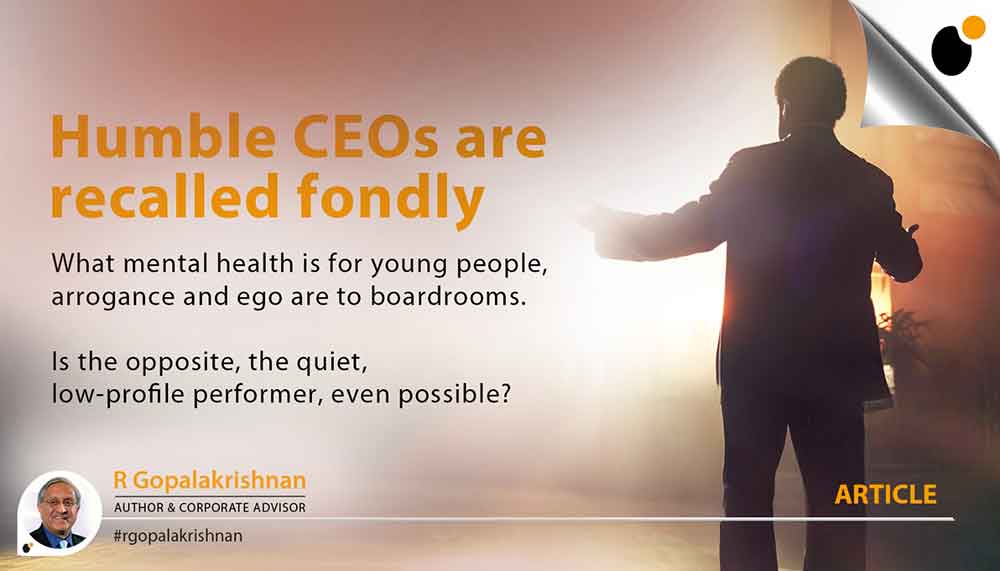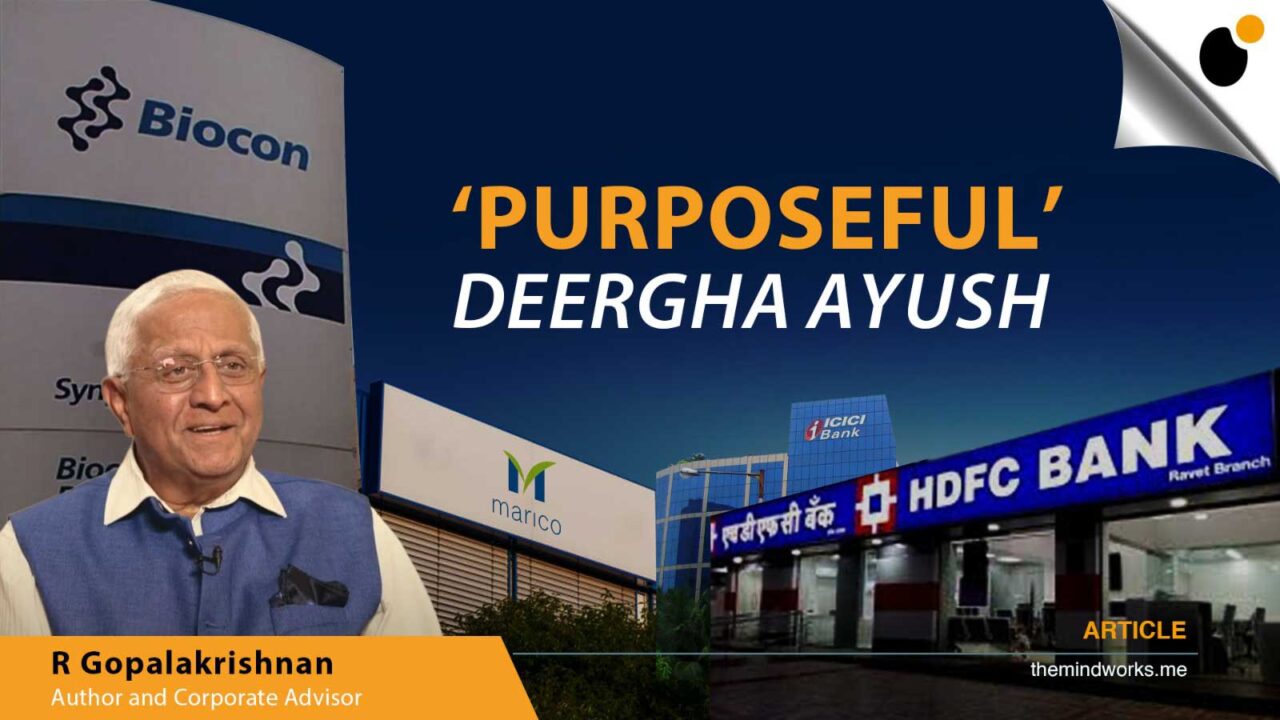By R Gopalakrishnan*
*The writer is an author. His latest book, JAMSETJI Tata—powerful learnings for corporate success, coauthored with Harish Bhat, was published in July 2024. His ID is rgopal@themindworks.me
What mental health is for young people, arrogance and ego are to boardrooms. Is the opposite, the quiet, low-profile performer, even possible?
Mahmud of Ghazni is remembered for depravities and wars. Apparently, he had a Hindu army division, which he used to fight rebel Muslims, as during the capture of Zarang fort in 1003 CE. Mahmud’s capital city and tomb are now crumbling, unmarked and uncelebrated. Such is the collapse of arrogant power and pomp!
What mental health is for modern young people, arrogance and ego are to boardrooms. The evidence that CXOs are increasingly affected by arrogance is anecdotal, but a sure trend. In my 2018 book, CRASH, I quoted researchers, who found that power intoxicates a leader, and impairs their judgement (Professors Pamela Smith, Dacher Keltner, Sukhvinder Obhi et all). The pressure on CEOs to constantly demonstrate energy and competence is excruciatingly intense.
Paradoxically, the performance metrics are subtle and ambiguous—if you can, hear Trump’s view of Biden’s performance!! CEOs are evaluated as if business delivery can be precisely measured. If a CEO cannot deliver growth, increase market share, or report higher profits within a time frame, the person is fired or he or she quietly resigns, like in Starbucks, Paramount Global, and Boeing. Even in conservative Japan, the Suntory chief executive officer, Takeshi Niinami, lamented that Japan has reached a ‘tipping point,’ driven by shareholder activism. Can India be far behind?
Outsiders do not have authentic information about the company. Reasons behind CEO partings are many, including being authoritarian, arrogant, or behaving as if they are God’s messenger. Investors, CEOs, civil society and corporate boards find that trust is thinning rapidly, just as political leaders experience with their voters.
Conscientious leaders earn long-term trust by doing the right things in the right way at the right time. After the death of Mahatma Gandhi, Lal Bahadur Shastri, and Dr Manmohan Singh, it is their humane qualities–insaniyat, ibadat, and inayat (fairness, courtesy, and grace) –that are remembered. WIPRO’s values, for example, include ‘treating people with respect’, and ‘unyielding integrity’. Leaders are prone to narcissism, and social media aggravate matters. The few who cross the line make big news.
People work through a mental image about leaders’ performance. Numbers help but are prone to cherry-picking. Consider the data on the Manmohan economic record. From 2004-2013, India’s economic performance was among India’s best in eight decades (based on the 2011-12 constant price series). Annual GDP growth was 6.7%, gross capital formation growth was 9.6%, private consumption expenditure growth was 6.2%, per capita income growth was 5.04%, exports’ growth was 12.1%. Manmohan Singh, quietly and without fuss, delivered his amrit kaal with no announcements. Yet MMS did have some failings. Disappointingly, balderdash has developed that that he did not perform. Some incoherent voices also proclaim that India ‘gained independence’ after 2014!
History values CEOs for performance but dearly treasures humble performance. Integrity is ascribed when words match deeds. Narcissism is the gap between leaders’ words and deeds. Narcissistic leaders generate news during their tenure and are later remembered for performance, but also their self-obsession, charisma, demand for personal loyalty, and mental derangement. When narcissistic leaders have humble backgrounds, acolytes embellish that fact; for example, Nadir Shah, Napoleon, and Hitler, who match all the above characteristics.
Stanford researcher Charles O’Reilly, says that narcissistic leaders believe that they are superior, that rules are meant to be bent, lack empathy, bluff without shame, and never admit their mistakes. Think of Bernie Ebbers of WorldCom, Ken Lay of Enron. Is the opposite, the quiet, low-profile performer, even possible?
I quote published news about the CEO of D-Mart Avenue Super Market. After 22 years as CEO at D-Mart, he is reported to have stepped down. His team built D-Mart into a retailer with 380 stores, a revenue of Rs 50,000 crores, and a market capitalization of Rs 2,20,000 crores. Who knows, maybe after twenty-two years, it is a good time for the CEO to change.
The CEO is Ignatius Navil Noronha, and the promoter is Radhakishan Damani. Ever heard of them? Perhaps they are grateful to be left alone to get on with delivering their targets. Read Navil Noronha’s statement upon moving on, “I believe that D-Mart is a business model that has a multi-decadal runway for growth. If we stay the course of simplicity, efficient costs, happy employees, deep value to customers, and, most importantly, not doing anything else, we will always remain relevant for a long time to come.”
Time will tell if he is right. D-Mart is a great company, but must evolve as a long-lasting ‘institution’. As of now, he seems a rare, humble, self-effacing, and performing CEO, who leads from the back. (refer Ravi Kant’s book Leading from the Back)



